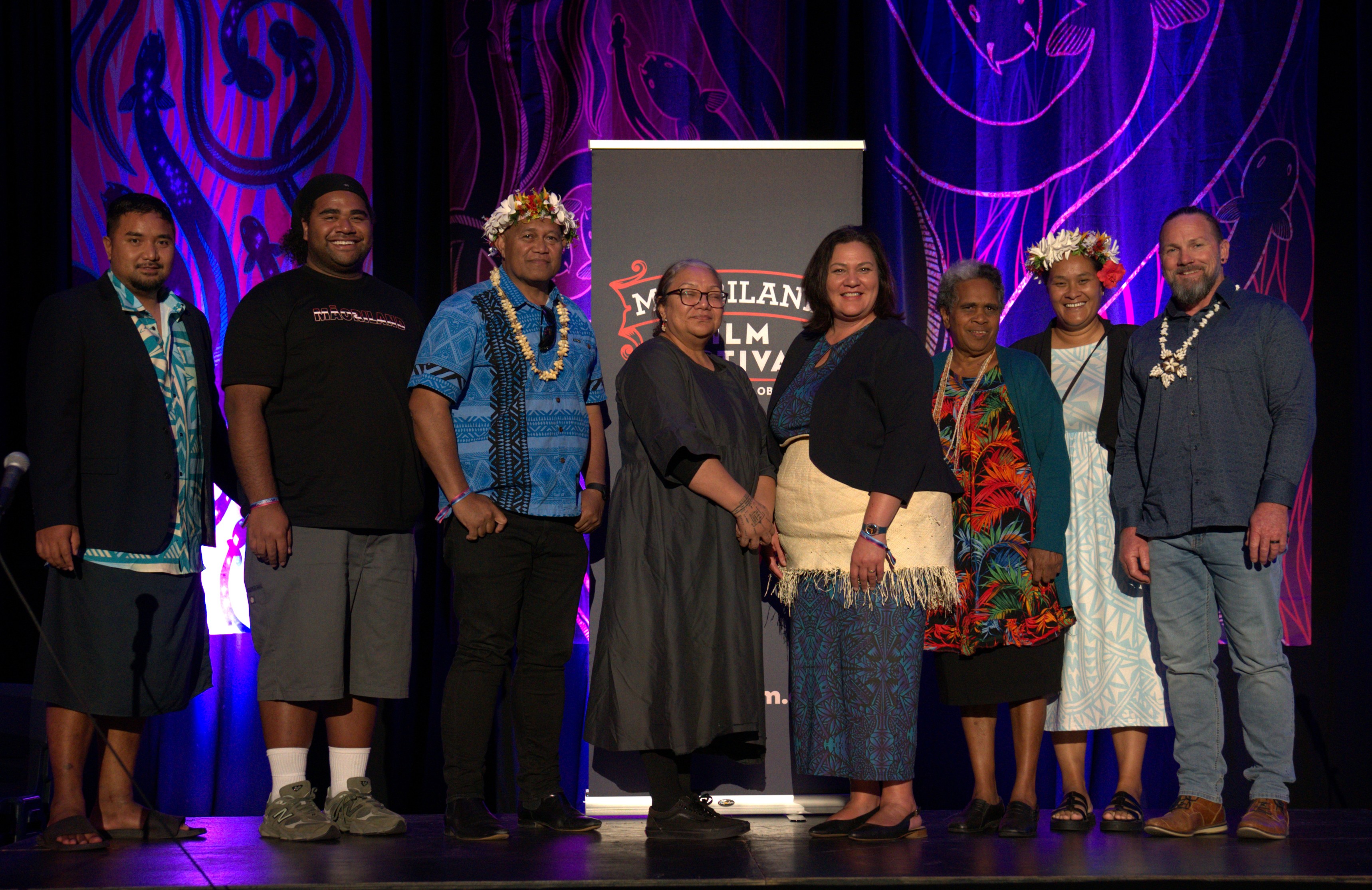Mana Pacific Consultant hosted their first climate mobility workshop preparing their research team to deep dive into collecting family stories on climate mobility ‘back on the (is)land’.
Mana Pacific Consultants has been commissioned by the New Zealand Ministry of Foreign Affairs and Trade (MFAT) to undertake research on multigenerational family stories of climate mobility, complimenting studies being undertaken by the University of Auckland and the University of Waikato on Pacific climate mobility. Understanding the impacts of climate mobility from an Indigenous families’ perspective will contribute actionable knowledge for policy. Climate mobility is an umbrella term for situations where climate change and environmental factors are a driver for people moving, and for situations where people decide to stay in place. Some examples include the relocation of a community within a country (e.g. moving a village inland in response to natural hazards such as flooding or sea-level rise), an individual’s temporary move for economic reasons (e.g. via labour mobility schemes), and permanent migration within the Pacific.

In May 2023, Mana Pacific Consultants’ researchers from Tuvalu, Tokelau, Kiribati, PNG, Solomon Islands, and Tonga gathered for a two-day workshop in Palmerston North, New Zealand, to help develop a collective methodology for the research. The workshop cultivated lots of discussion from colleagues about their own families’ known experiences of climate mobility from the bigger lands and smaller islands within their nations. Within the group, stories flowed about gardens, homes, church buildings, loved ones’ graves, sources of drinking water, food caught from the ocean and more - with some stories going back several generations of what once was, and the changed realities of what now is. Tremendous resilience was obvious with stories shared during this first workshop reflecting colleagues’ own families’ priority of relationship with place.

Heritage connection to both place and family is a powerful attribute for team members as a returning “son” or “daughter” to carry out this research. Keith Sanga, colleague from Solomon Islands, suggests the presence of a “Redemptive arc: What can we do? And how do we get there quickly?” For the data collection with their own relatives, colleagues will be dialoguing with family members in their own indigenous dialect(s). PNG colleague Dr Hennah Steven explains, “we bring emotionality when we bring our own languages to talk with our families.”

Workshop participants learnt about the arts-based methods of found poetry (led by Dr Michelle Redman-MacLaren) and were introduced to digital storytelling (led by Vea Mafile’o) as ways of presenting stories from their family-story fieldwork.
For more information about the Climate Change Programme this sits within, see this short backgrounder on the Ministry of Foreign Affairs and Trade website.

We bring emotionality when we bring our own languages to talk with our families.



